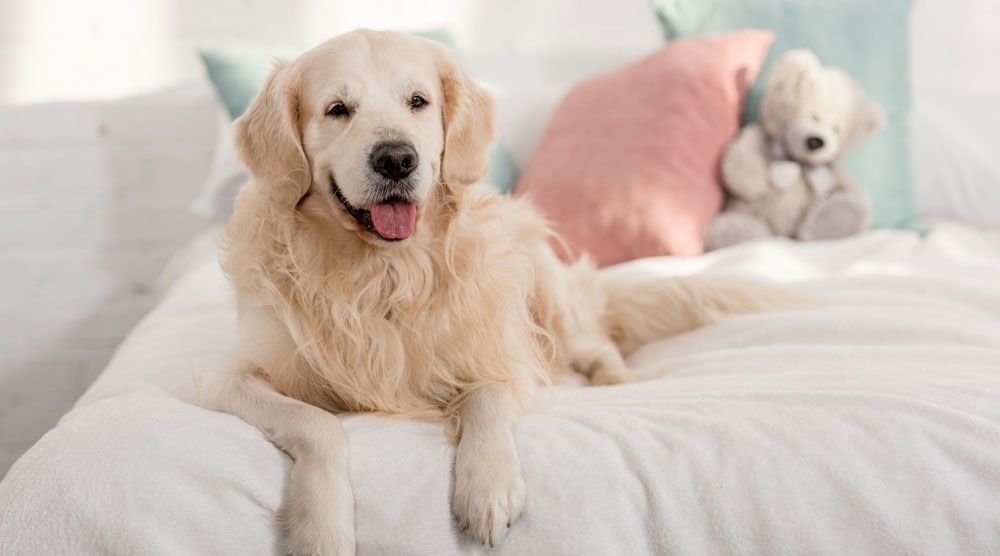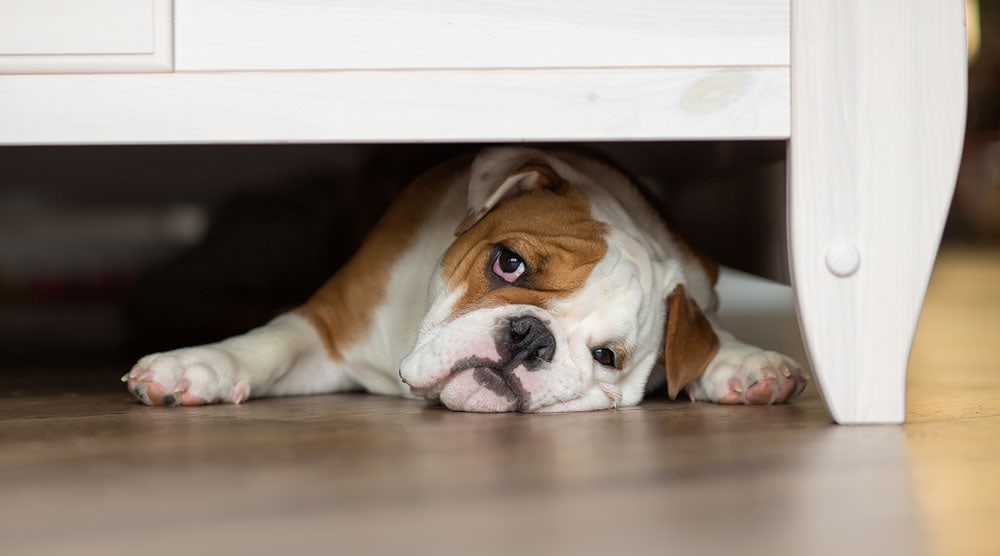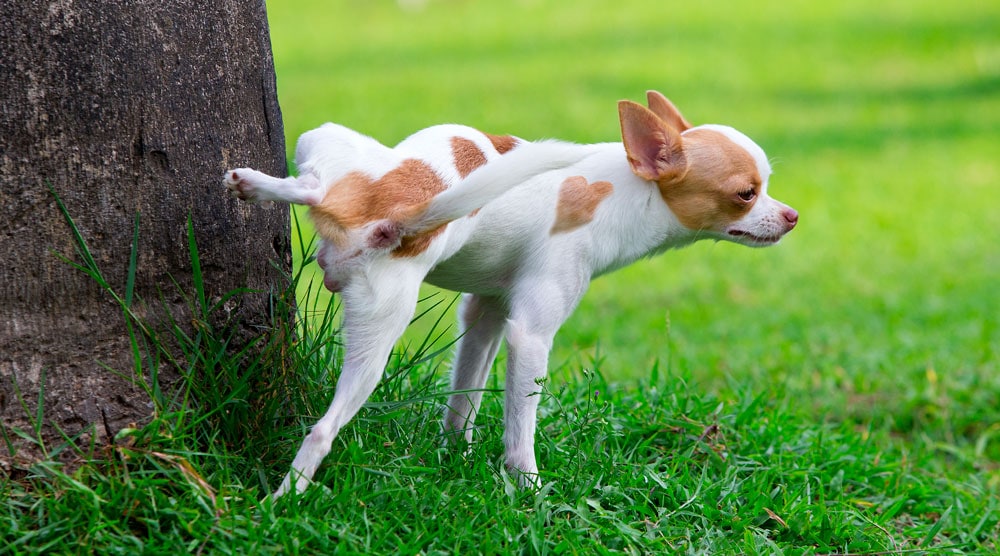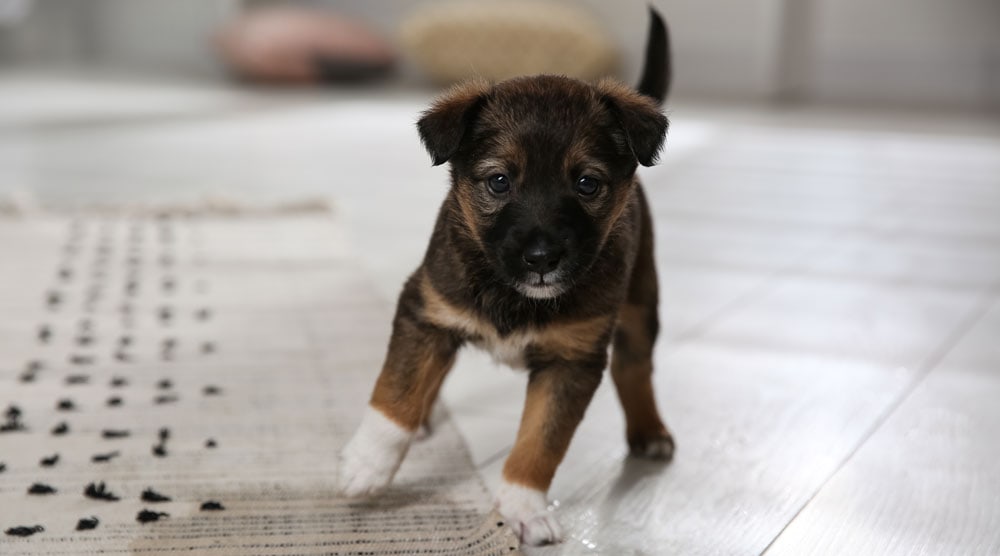Key Takeaways
- Dogs don’t pee on their owners bed to be vindictive, get revenge, or to make you angry.
- Instead, peeing on the bed is often due to either anxiety or poor bladder control.
- Failing to fully remove the urine smell from a previous accident can make peeing on the bed more likely in the future.
- You can prevent peeing on the bed by restricting access to the bedroom, working on toilet training using positive methods, and visiting a vet if you suspect your dog might have a urinary tract infection.
There’s no doubt about it: having your dog pee on your bed can be a very frustrating and unpleasant experience. Unfortunately, this behavior can also become reinforced the more times it happens.
The good news is that this is a dog problem that can be fixed! The key is to understand the real reasons why your dog is peeing on your bed. These can include poor bladder, an existing urine scent, anxiety…but not that your dog is trying to get revenge or make you angry.
Contents
4 Reasons Your Dog Pees on the Bed
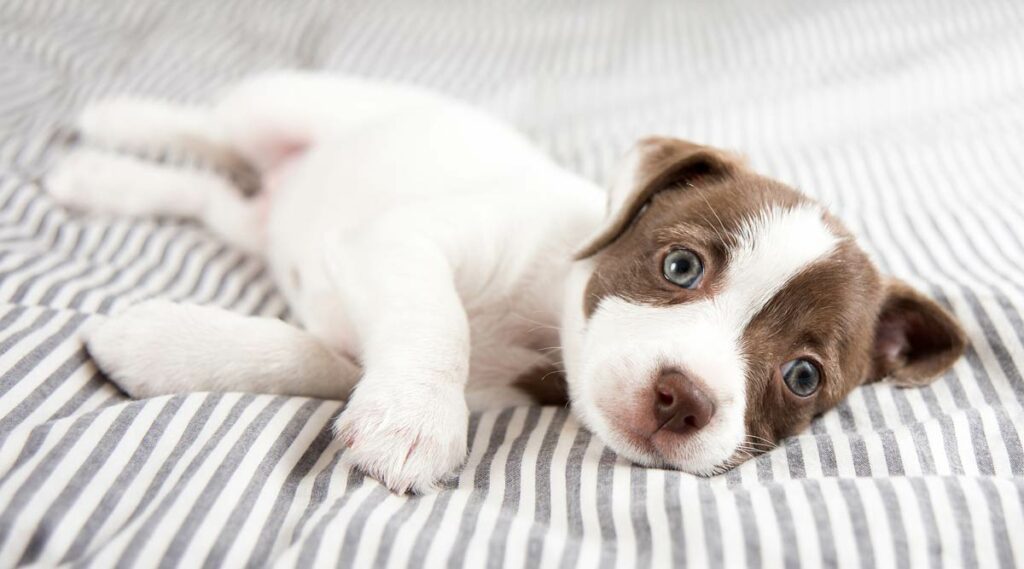
The first step to preventing an unwanted behavior is understanding why your dog is doing it. The reasons can vary between dogs, but here are the most common causes of a dog peeing on the bed.
1. Dog Has Poor Bladder Control
In some cases, a dog may pee on their owner’s bed due to poor bladder control. There is likely nothing significant about the bed itself, other than that’s where the dog happened to be at the time.
Poor bladder control can happen for a variety of reasons. For example, young puppies have small bladders and can’t be expected to hold on long. Even young dogs who understand the concept of house training can still have accidents. Unless you’re giving your puppy regular chances to “go” they’ll do it wherever they happen to be!
If you need help with house training here is a link to a great video that shows how to house-train a puppy using positive methods:
At the other end of the scale, elderly dogs are prone to diseases such as urinary tract infections or diabetes. These can increase the urgency and amount of urine the senior dog produces.
If you’re concerned about the frequency of your dog’s urination or suspect they might have a urinary tract infection, take them to a vet. Often the right treatment can help the dog gain control over their bladder and, more importantly, diagnose any underlying health issues.
2. Dog Can Smell an Existing Urine Scent
Ever noticed your dog has particular places they pee in the park or garden (or your bed if you’re reading this article?) This is because the more a place smells of his/her urine, the more a dog links it to going to the toilet.
As a result, your bed could have become a habitual spot for your dog to urinate. The first accident may have happened simply because that’s where the dog was at the time they needed to pee, but the scent makes them instinctively more likely to go there again.
It’s difficult to wash a bed thoroughly, especially if the urine has been absorbed into your mattress. Remember, your dog’s sense of smell can be up to 100,000 times more powerful than your own, so even if it smells clean to you, chances are it still smells like urine to your dog!
To prevent re-soiling, you may need to use a pet stain remover to neutralize the pee odor. Giving all your bedding a thorough wash can also help.
3. Dog Is Displaying Anxious Urination
Dogs who are timid or anxious may display anxious urination. If this is the case, just having a person approach the dog can trigger them to pee, including if they are resting on your bed.
Submissive urination is usually accompanied by anxious or fearful canine body language, such as rolling onto their back and exposing their stomach. Both peeing and this posture are the dog’s attempt to appease the person who may be perceived as a threat.
This is also why the behavior can become worse if the dog is punished or scolded for peeing on the bed. Being told off causes increased anxiety linked to the bedroom, which in turn increases the chance of submissive urination.
4. Dog is Experiencing Separation Anxiety
Do you ever come home to find your dog has peed on the bed? This could be a sign of separation anxiety.
Dogs are sociable creatures, as humans have bred them to form strong attachments to us.
If a dog suffers from separation anxiety they become extremely distressed whenever their owner leaves the house.
Whilst you are away, the dog may become destructive, bark or howl excessively, continuously pace, and defecate. You may also notice signs of agitation or depression in your dog as you are preparing to leave the house.
The extreme anxiety the dog feels at being left on their own can trigger them to urinate – and if your bed happens to be where they are hiding at the time, you’re going to come home to a wet bed.
Myths About Dogs Peeing on the Bed
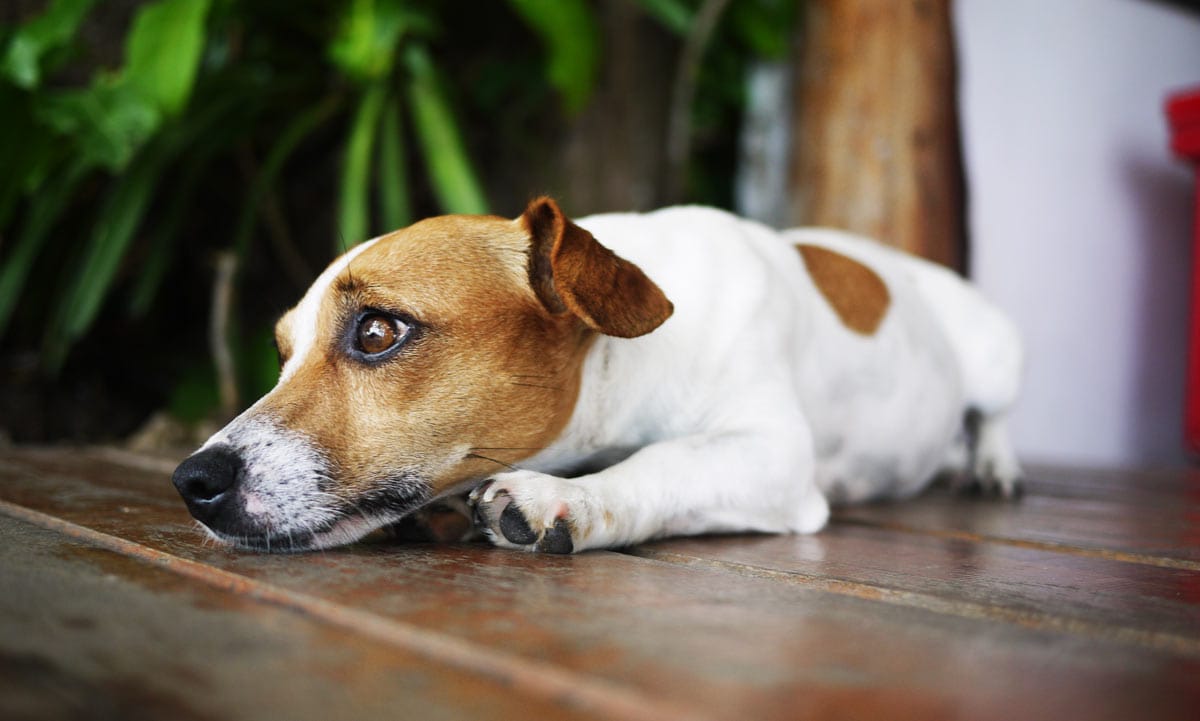
There are some common misconceptions as to why dogs pee on furniture. These tend to be linked with anthropomorphism (imagining your dog has the same thoughts and feelings as a human.)
So the following are NOT reasons your dog pees on your bed:
- Your dog is not trying to get back at you for leaving them/something you did to them earlier. As clever as dogs are, they are not capable of plotting revenge or holding grudges. While it might be frustrating to come home to urine-soaked bed sheets, this isn’t a behavior your dog has purposefully performed to upset you.
- Your dog is not trying to be dominant over you. Dominance theory in dogs has been repeatedly debunked, so your dog certainly isn’t trying to be dominant by peeing on beds. Yes, urination can be used by a dog to mark territory, but this tends to be aimed at other pets or animals.
How Can You Stop Your Dog Peeing on Your Bed?
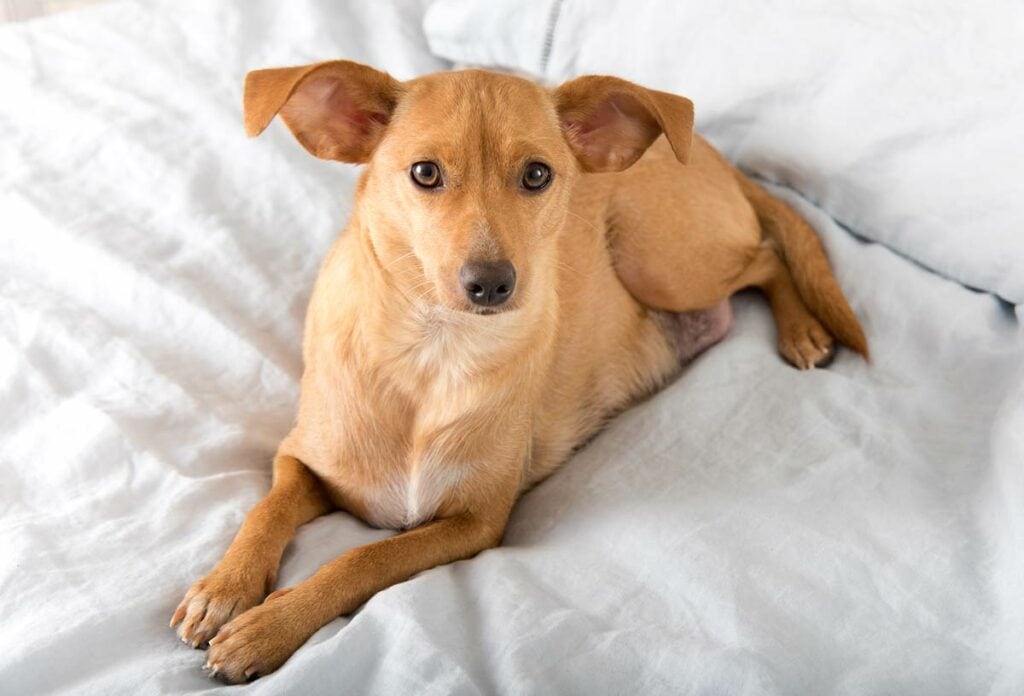
The solution to stopping your dog peeing on the bed depends on the underlying cause. Here are some tips to help you get started.
- Don’t allow your dog onto your bed. This sounds obvious, but is the only instant solution! This might not work if you live in a studio apartment though – and the dog may also start urinating in other areas of the house if you don’t solve the problem.
- If you have a young puppy or a rescue dog, make sure they are fully house trained before allowing them access to the whole house. Remember, a rescue dog may experience some house-training regression due to the stress of moving into a new home.
- Praise your dog and give them a treat for going to the toilet in the appropriate place.
- Don’t punish your dog if they pee in the “wrong” place. This can exacerbate the behavior by causing your dog extra stress – especially if the issue is anxious or excitement urination.
- Watch for signs your dog is about to pee on your bed – sniffing and circling are common – and calmly interrupt the behavior. Get your dog to follow you to the toilet location you want them to go.
- Take your dog to the veterinarian if it’s a new behavior to rule out infection or health issues.
- See a behaviorist if you believe your dog is doing it because he’s stressed or suffering from separation anxiety.
Summary
If your dog pees on the bed, there’s no need to panic. By working out what’s causing your dog to perform this behavior and taking preventative measures, it’s nearly always possible to stop it from happening.
The key thing to remember is that your dog isn’t being vindictive or trying to upset you. Instead, they might be anxious, have poor bladder control, suffer from separation anxiety, or just not know better.
Regardless of the reason, you should never scold or punish your dog. This is likely to make the situation worse and will damage your bond.
Do you have any questions about why dogs might pee on beds? Please let us know in the comments section below. You may also want to read our article about training dogs to pee on fake grass.
